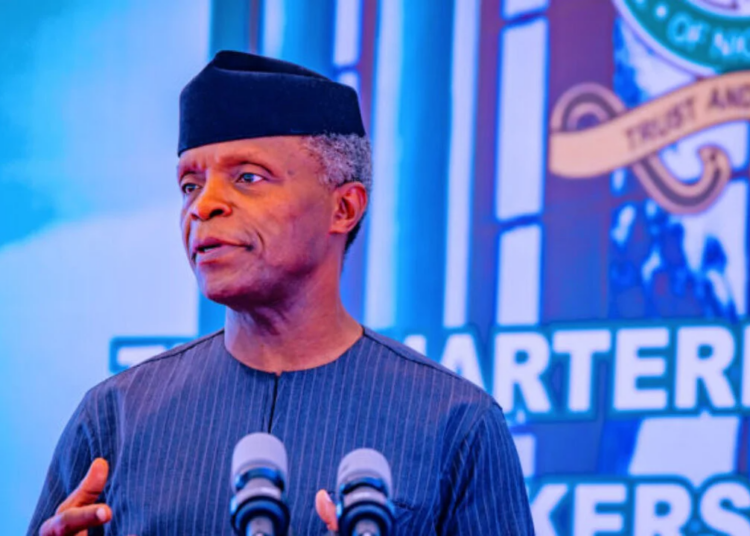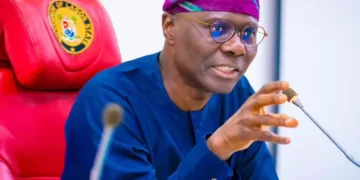Aside from other key development indices, the lives of young people and the future of the country depend largely on the collective efforts by public and private sectors towards improving human nutrition outcomes across the country, according to Vice President Yemi Osinbajo, SAN.
Prof. Osinbajo stated this on Monday when he presided over a virtual meeting of the National Council on Nutrition.
“If we don’t make these efforts and do it seriously, the sheer number of our children whose mental and physical development would be stunted would be mind-boggling, and I think that we must not allow a situation where in the years to come, we are asking ourselves whether we couldn’t have done better,” the VP stated.
It would be recalled that following the recommendations of the Council, a Presidential directive was given in March last year for the establishment of Nutrition Departments in all relevant Ministries, Departments and Agencies (MDAs) of government.
At the meeting today, the Vice President in a statement by his spokesman, Laolu Akande further mandated relevant public service officials to follow up on the issue for implementation of the directive.
“I am very concerned that we do not allow bureaucracy to get in the way of the real efforts that ought to be made.” This is a point that I think we must make again and again; we cannot afford to allow bureaucracy and some rules to get in the way of actually making the impact that we need to make,” according to the VP.
Emphasizing the significance of having these Departments of Nutrition in all relevant MDAs, the Vice President noted that “we must not lose sight of the fact that it is a historic responsibility for us and for coming generations that we do something significant, something that can be built on for those who are coming behind us.
“We must all come together and work hard on this issue of getting the department within the MDAs and ensuring that every MDA has a Department of Nutrition so that we can make individual impact and of course, the collective impact that we need to make,” he noted.
The Vice President also highlighted the need for the incoming administration to place Nutrition at the top of its agenda.
“I had a meeting last week with the technical advisory group of the Council and this was one of the issues that emerged, that we need to do something, to ensure that the incoming administration sees this also as a priority.
“And we have undertaken to do that to ensure that the Incoming administration is sufficiently sensitized through the transition council and through other formal and informal means.”
Prof. Osinbajo also urged for more public sensitization and awareness drive on the efforts of the Council in improving nutritional outcomes nationwide.
In fact, according to a recent UNICEF report, Nigeria has the second highest burden of stunted children in the world, with a national prevalence rate of 32 percent of children under five. An estimated 2 million children in Nigeria suffer from severe acute malnutrition (SAM), but only two out of every 10 children affected are currently reached with treatment. 7 percent of women of childbearing age also suffer from acute malnutrition.
The National Council on Nutrition virtual meeting was attended by Federal Ministers, Heads of Agencies of Government, development partners, and members of the private sector.
They included the Ministers of Industry, Trade and Investment, Otunba Niyi Adebayo; Women Affairs, Pauline Tallen; Water Resources, Engr. Suleiman Adamu; Agriculture, Dr Mahmood Mohammed Abubakar and the Minister of State for Budget and National Planning, Prince Clem Agba. The Chairman, Board of Trustees, Nutrition Society of Nigeria, HRH Mohammad Sanusi II, a member of the Council, also attended the meeting.











